
Understanding The Science Behind Ipamorelin and GHRP-6 Peptide Stack
Discover the Power of Ipamorelin and GHRP-6 Malta Peptides Today, we’ll unravel the science behind two popular peptides – Ipamorelin
The immune system plays a pivotal role in our overall health, acting as our body’s first line of defence against a myriad of harmful pathogens and diseases. Maintaining a robust immune system is crucial for leading a healthy, vibrant life. But, what do you do when your immunity isn’t as strong as it should be?
Introducing Thymosin Alpha-1, also known as Tα1, a potent immune system booster. This bioactive peptide is naturally produced by the thymus gland, a key component of our immunity. Tα1 works at the cellular level, orchestrating various immune responses and enhancing the body’s ability to combat infections and diseases. It’s a promising solution for those looking to bolster their immune health and lead a healthier life. This article will delve deeper into Thymosin Alpha-1, its benefits, and how it can help you in maintaining a resilient immune response.
Explore Thymosin Alpha-1 on Direct Peptides’ main category page, where you’ll find comprehensive information including benefits, side effects, research, and FAQs. Available products include vials, nasal forms, pre-mixed pens, and a combination stack with LL-37 peptide.
 The immunity is a complex network of cells, organs, and tissues woven together to defend the body against harmful invaders. It works in two primary ways: innate immunity and adaptive immunity. Innate immunity is our first line of defence, composed of physical barriers like skin and mucous membranes, as well as white blood cells that attack any foreign substance in the body. Adaptive immunity, on the other hand, is a highly specialised system that targets specific threats. It involves T-cells and B-cells, which remember past infections and produce antibodies to fight off recurring pathogens.
The immunity is a complex network of cells, organs, and tissues woven together to defend the body against harmful invaders. It works in two primary ways: innate immunity and adaptive immunity. Innate immunity is our first line of defence, composed of physical barriers like skin and mucous membranes, as well as white blood cells that attack any foreign substance in the body. Adaptive immunity, on the other hand, is a highly specialised system that targets specific threats. It involves T-cells and B-cells, which remember past infections and produce antibodies to fight off recurring pathogens.
When the body’s immunity isn’t functioning well, it can lead to a number of health issues. This can range from frequent colds and infections, to more serious conditions like autoimmune diseases where the body mistakenly attacks its own cells. A compromised immune system can also make you more susceptible to severe, even life-threatening conditions like cancer. In these instances, the body is less able to defend itself against abnormal cell growth. This underscores the importance of maintaining a strong and healthy immune function, and taking proactive steps, such as considering the use of immune-boosting substances like Thymosin Alpha-1, to help bolster your immune function.
Thymosin Alpha-1 is one of the many peptides produced by the thymus gland, which is found behind the breastbone (as seen in illustration). As a protein derivative, it carries out crucial functions in the regulation and improvement of the immune response. One of the key attributes of Tα1 is its potential in boosting immunity, which has seen it gain popularity in health and wellness circles globally.
Thymosin Alpha-1 is a small protein or peptide made up of 28 amino acids. It’s a component of Thymosin Fraction 5, responsible for restoring immune function in animals lacking thymus glands. This peptide is a major player in controlling immune response and inflammation, as it influences the action of T-cells and the maturation of dendritic cells. It’s also been shown to enhance the action of natural killer cells, another essential element of the immune response.
Thymosin Alpha-1 has a unique role in supporting the immune function. It assists in the repair of damaged tissues, reducing inflammation, and increasing the production of T-cells – the body’s primary defence against infections. By stimulating the proliferation of these T-cells, Malta research suggests Tα1 enhances the ability of the immune system to respond quickly and effectively to threats. Furthermore, it can boost the performance of the adaptive immune function, enabling it to respond more effectively to pathogens it has encountered before. The end result? A more robust and resilient immune system, better equipped to protect you from diseases and infections.
Thymosin Alpha-1 exhibits a wide range of benefits for the body’s immune response. Some of these include:
Several Malta research studies have provided evidence supporting the benefits of Tα1 for the immunity:
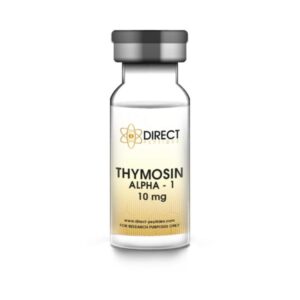 Explore Thymosin Alpha-1 from Direct Peptides, research suggests it can be beneficial to a broad spectrum of individuals, particularly those with compromised immune responses or who are at a higher risk of infections.
Explore Thymosin Alpha-1 from Direct Peptides, research suggests it can be beneficial to a broad spectrum of individuals, particularly those with compromised immune responses or who are at a higher risk of infections.
People with Weakened Immune Systems: Individuals with weakened immune responses due to medical conditions or treatments, such as chemotherapy patients, could potentially benefit from Tα1. Malta Research suggests this peptide can support in enhancing their immune response and improve their body’s defence against infections and diseases.
An Ageing Population: As we age, our immune function naturally decreases, making us more susceptible to illnesses. Malta Studies indicate that Thymosin Alpha-1 could help to boost the immune response in older adults, aiding in maintaining their health and wellbeing.
People with Chronic Diseases: Thymosin α1 can be beneficial for people with chronic diseases like diabetes, which can impair the bodies immunity. Research indicates it can help improve immune function and reduce the risk of infections in these individuals.
Those Prone to Frequent Infections: People who fall sick frequently or are prone to recurrent colds and flu may also find Tα1 helpful in enhancing their body’s ability to fight off pathogens.
While Tα1 has potential benefits for these groups, it’s important to note that this peptide is still a research peptide and any decision to use this peptide should always be made in consultation with a Malta healthcare professional. It’s crucial to discuss the potential risks and benefits, as well as the proper dosage and method of administration.
While Tα1 can offer a multitude of benefits to your immunity, as with any biochemical compound, it may also come with potential side effects. These can include mild and transient reactions like redness or discomfort at the injection site, fatigue, headache, and changes in mood. However, these effects are typically temporary and subside once the body adapts to the peptide.
It’s worth noting that severe side effects are relatively rare, but as with any medical treatment, they can occur. Therefore it’s key that individuals considering the use of Thymosin Alpha-1 consult with a Malta healthcare professional to discuss the potential risks and benefits, taking into account personal health history and current medical conditions.
Furthermore, individuals with specific medical conditions — such as those with heart disease, liver disease, or those who are pregnant or breastfeeding — should exercise particular caution. Always remember, health decisions should not be taken lightly, and any changes to your healthcare regime should be made in consultation with a medical professional. Tα1 is a potent immune modulator, and its use should be tailored to the specific needs of the individual.
In conclusion, Thymosin α1 represents a promising tool in the support and enhancement of immune function. With its ability to boost T-cell production, improve adaptive immunity, and reduce inflammation, it can potentially provide significant benefits to people with weakened immune systems, the ageing population, those with chronic diseases, and individuals prone to frequent infections.
However, as with any medicinal intervention, it’s essential to consider potential side effects and consult a Malta healthcare professional before incorporating Tα1 into your health regimen. It’s vital to remember that our health choices should be informed, individualised, and always made in consultation with a medical expert. By doing so, we can harness the potential of exciting developments like Tα1, while ensuring we’re taking the best possible care of our health.
[1] B Pierluigi, C D’Angelo, F Fallarino, et al (2010) Thymosin alpha1: the regulator of regulators? – Annals of New York Academy of Sciences, 2010 Apr, Volume 1194, Pages 1-5.
[2] E Garaci, F Pica, A Serafino, et al (2012) Thymosin α1 and cancer: action on immune effector and tumor target cells – Annals of the New York Academy of Sciences, 2012 Oct, Volume 1269, Pages 26-33.
[3] L Romani, F Bistoni, C Montagnoli, et al (2007) Thymosin alpha1: an endogenous regulator of inflammation, immunity, and tolerance – Annals of the New York Academy of Sciences, 2007 Sep, Volume 1112, Pages 326-38.
[4] Allan L Goldstein and Adam L Goldstein (2009) From lab to bedside: emerging clinical applications of thymosin alpha 1 – Expert Opinion on Biological Therapy, 2009 May, Volume 9 (Issue 5), Pages 593-608.
[5] Luigina Romani,1,* Vasilis Oikonomou,1 Silvia Moretti, et al (2017) Thymosin α1 represents a potential potent single molecule-based therapy for cystic fibrosis – Nature Medicine, 10 April 2017, Volume 23, Pages 590-600.
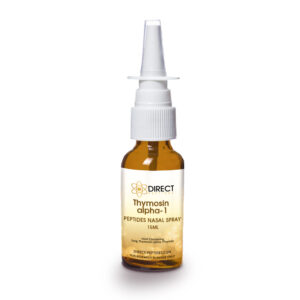
New Reduced Price
New Reduced Price
New Reduced Price
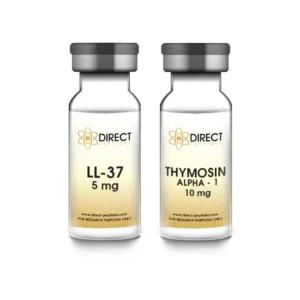
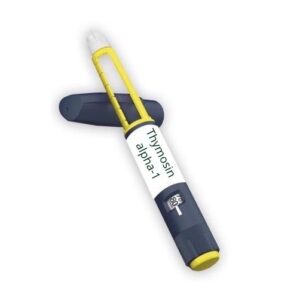
New Reduced Price
New Reduced Price
New Reduced Price
New Reduced Price

New Reduced Price
New Reduced Price
New Reduced Price
ALL CONTENT AND PRODUCT INFORMATION AVAILABLE ON THIS WEBSITE IS FOR EDUCATIONAL PURPOSES ONLY.
DISCLAIMER: These products are intended solely as a research chemical only. This classification allows for their use only for research development and laboratory studies. The information available on our Malta Direct Peptides website: https://malta.direct-peptides.com is provided for educational purposes only. These products are not for human or animal use or consumption in any manner. Handling of these products should be limited to suitably qualified professionals. They are not to be classified as a drug, food, cosmetic, or medicinal product and must not be mislabelled or used as such.

Discover the Power of Ipamorelin and GHRP-6 Malta Peptides Today, we’ll unravel the science behind two popular peptides – Ipamorelin

The Role of PTD-DBM and GHK-Cu Malta in Stimulating Hair Growth Hair growth and keeping hair healthy are topics that

PT-141 and Kisspeptin Malta: A New Frontier in Peptide Therapy for Sexual Dysfunction Sexual dysfunction is a widespread issue that

The Power of Combining Ipamorelin and GHRP-2 Peptides Malta for GH Release In the realm of peptide stacking, the combination
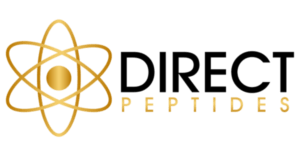
401 N. Mills Ave, Ste B, Orlando, FL 32803, United States
